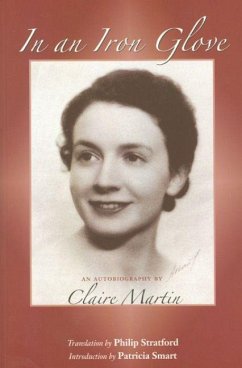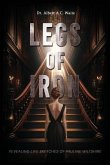Claire Martin's autobiography was first published in two volumes in 1965 and 1966. Already a prize winning Quebec writer, the author generated a wave of controversy with this detailed account of a childhood subjected to cruelty and brutality. Her deeply moving portrayal drew acclaim from readers who saw aspects of their own childhood experiences mirrored in its pages; it also evoked resistance from traditionalists unsettled by its exposé of family, church, and convent school some decades before the Quiet Revolution. Written with the passion of one who has known harsh injustices, this memoir nevertheless reflects the steady focus and narrative skill of an seasoned writer. With a richly descriptive style and deft ironic touch, Claire Martin tells her own unforgettable story of a young person confronting and finally emerging from the oppressions of unrestrained malign authority.
Hinweis: Dieser Artikel kann nur an eine deutsche Lieferadresse ausgeliefert werden.
Hinweis: Dieser Artikel kann nur an eine deutsche Lieferadresse ausgeliefert werden.








